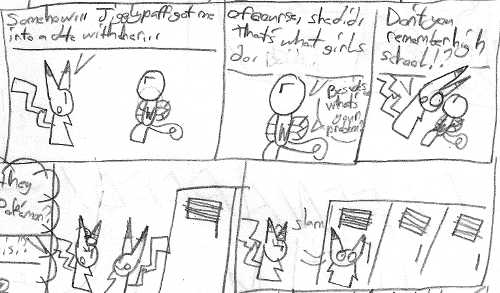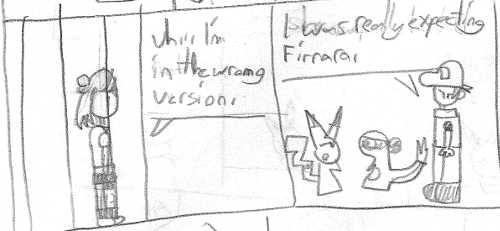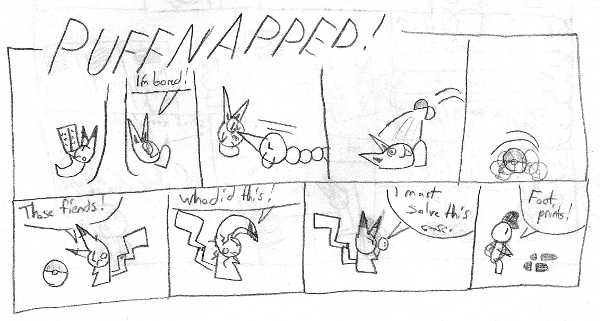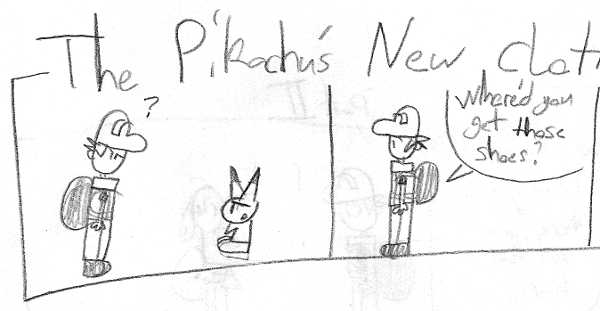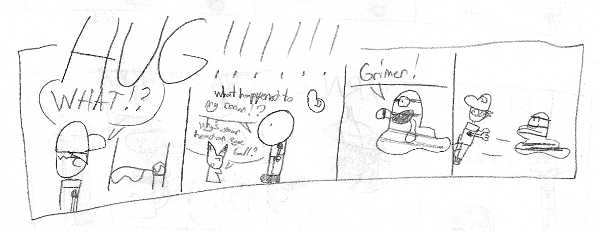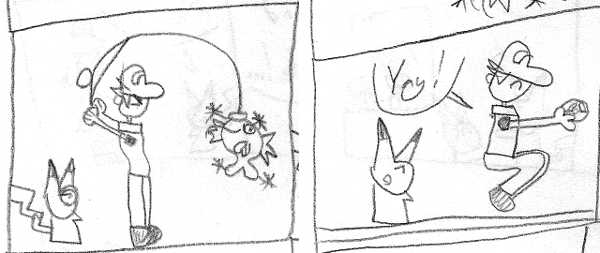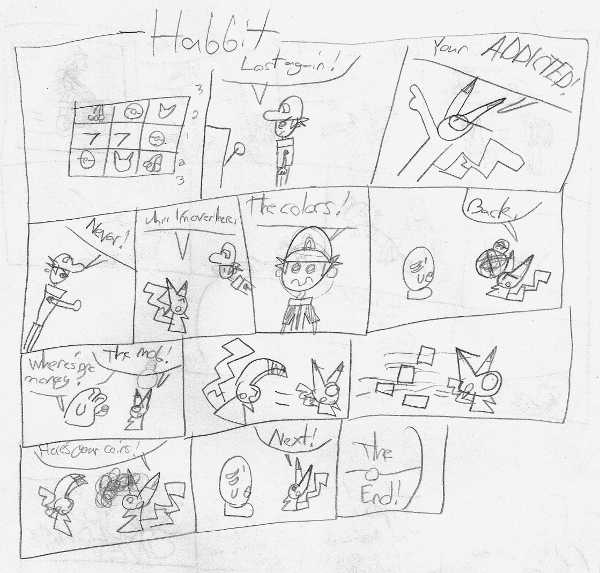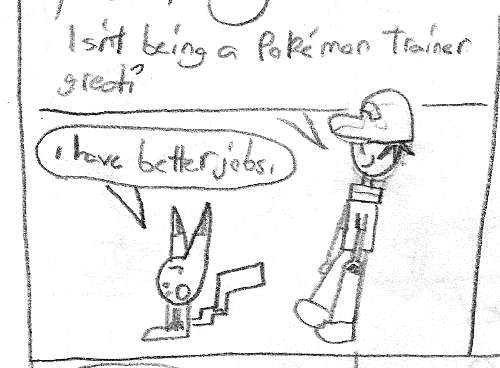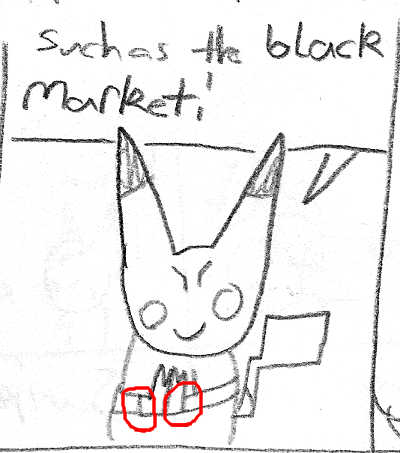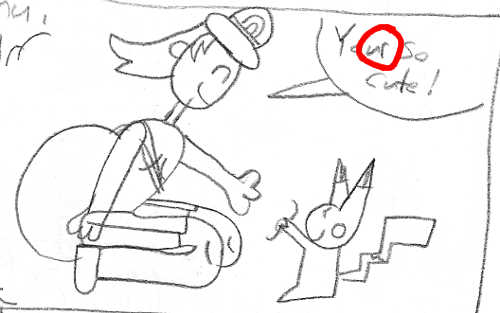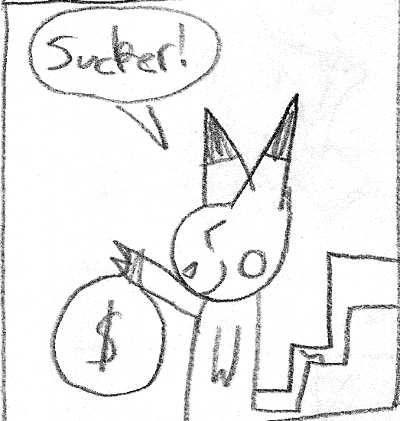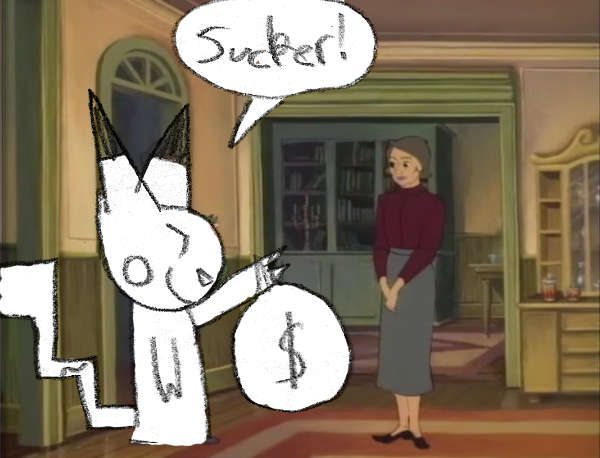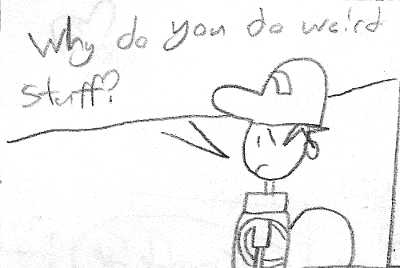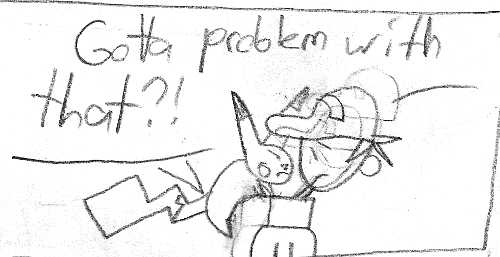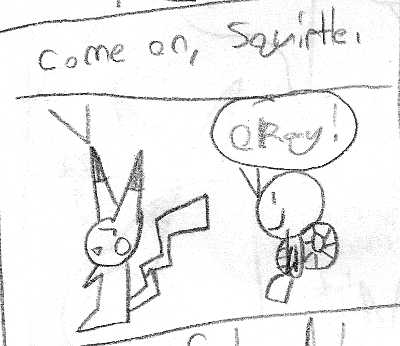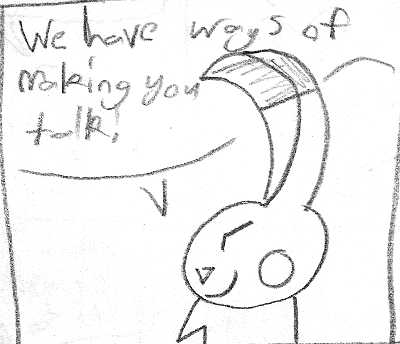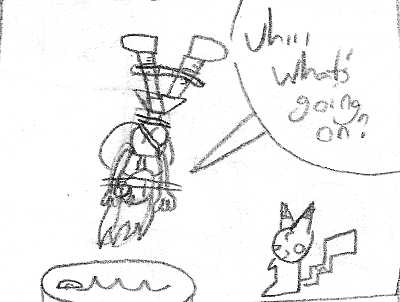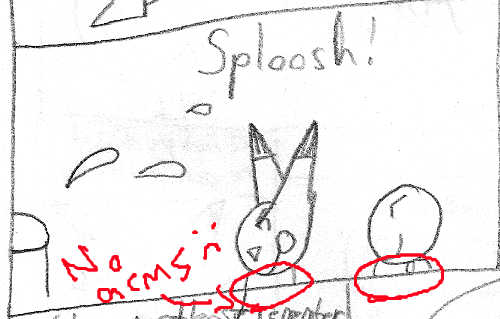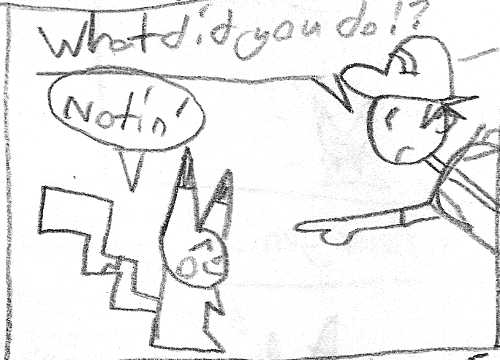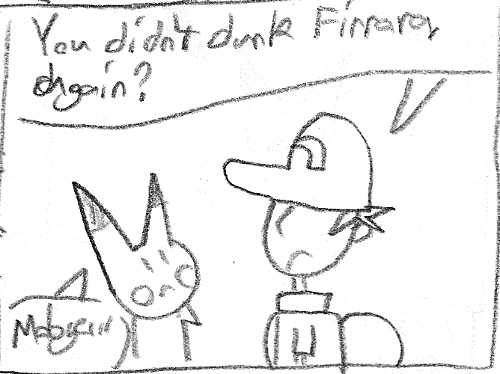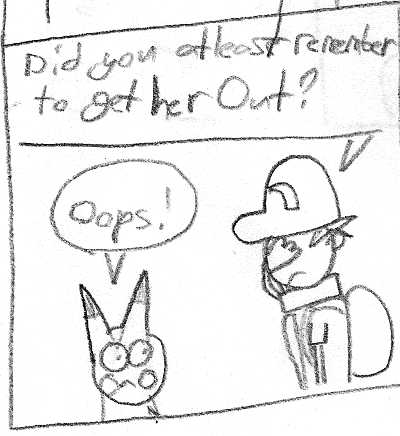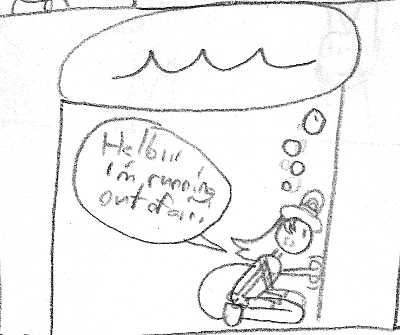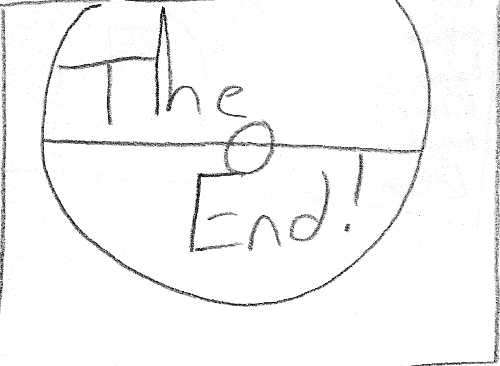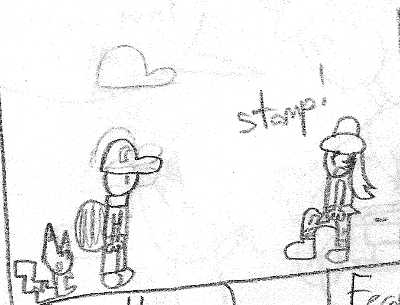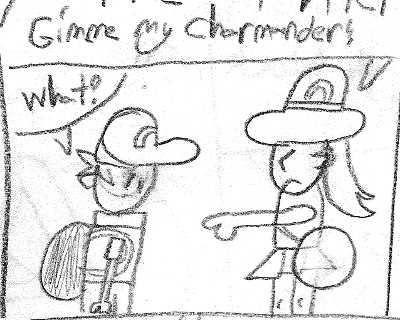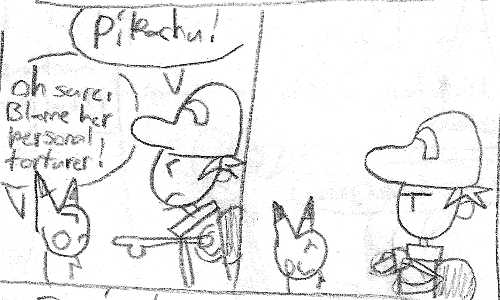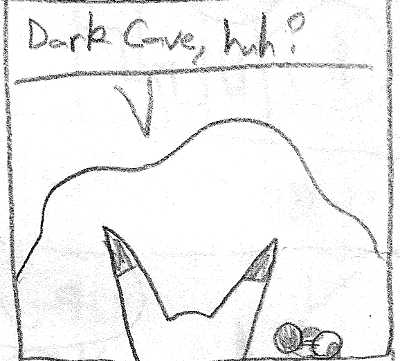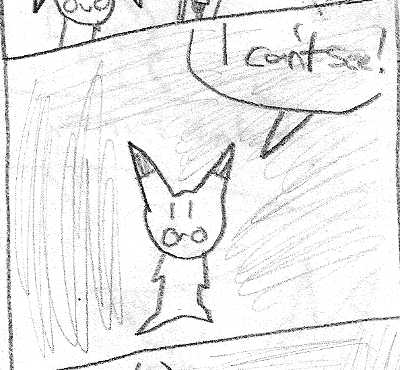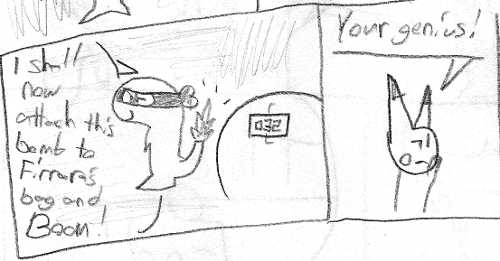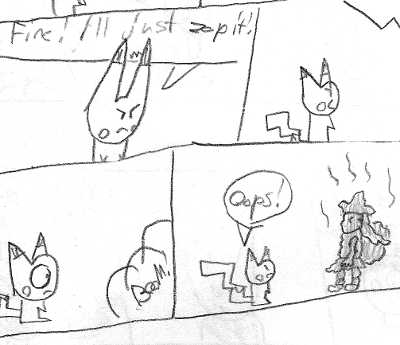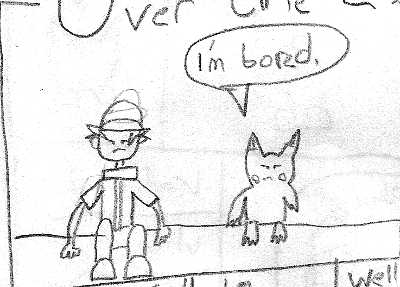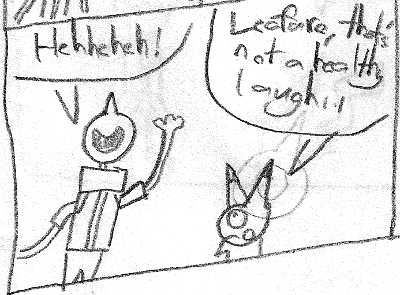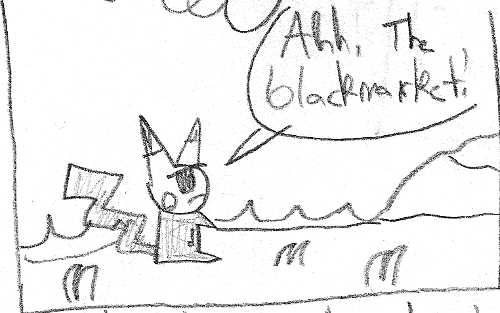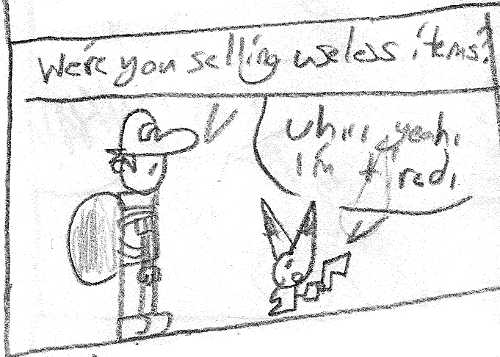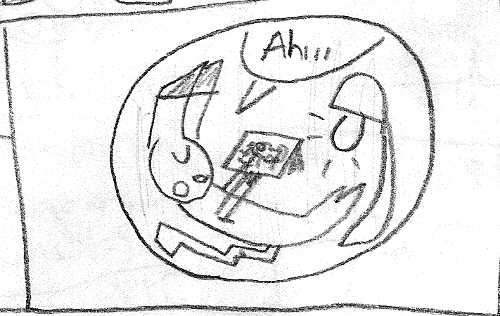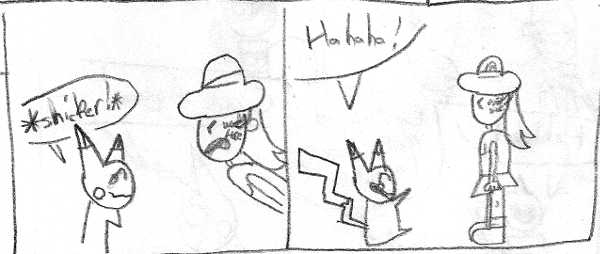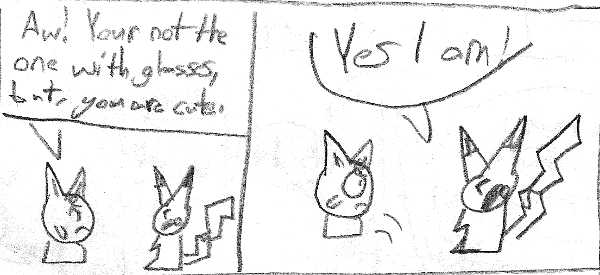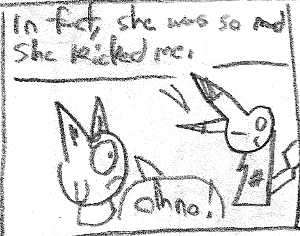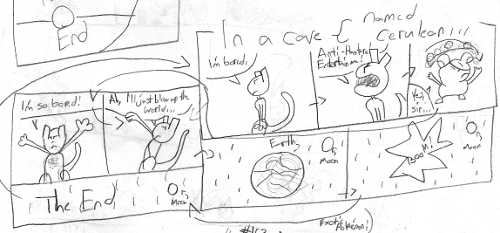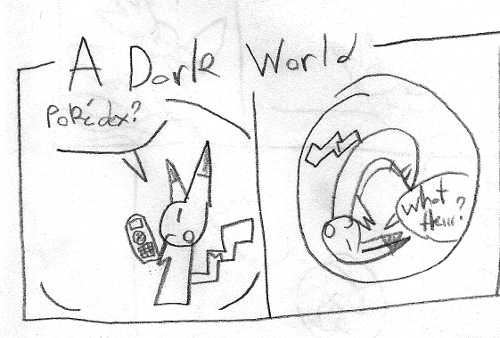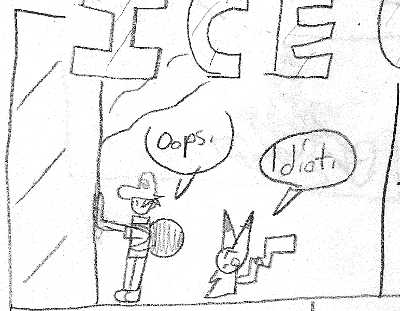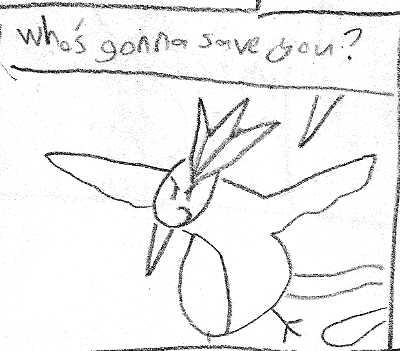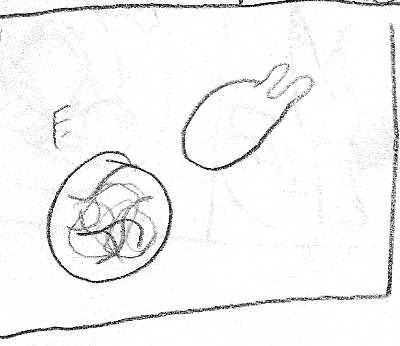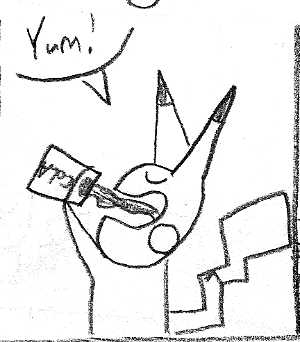The controversy surrounding “labor theory of value” is interesting to me in that I agree that it’s not a particularly useful theory, but almost every criticism I hear against it is stupid. Probably ’cause almost all criticism is by people who believe in the Orwellian “subjective theory of value”, which is e’en stupider.1
Part o’ the problem is that people obsess o’er the binary o’ whether it’s “right” or “wrong”, & not the mo’ logical basis for judging a theory, such as “¿is it useful for understanding economics?”. It’s like that cliché issue on internet forums o’ whether god exists: either yes or no, it doesn’t help one understand any phenomena mo’ since god’s existence or nonexistence has no implications for anything.
To simplify, I’d say that there is logic to the “labor theory”, but that it doesn’t prove much o’ anything — &, indeed, I’d say if you pay close attention to pretty much all pro-market people, they all believe in the importance o’ labor to creating value, too.
I’ll freely admit that the logic I came up with may have nothing to do with whatever the many contradicting interpretations o’ Marx’s incomprehensible works & that I don’t care. I’m going to stand by the logic I present here whether it’s called “Marxist”, “bourgeoisie”, or “shitheadist”.
The Logic o’ the Labor Theory
Value is such a vague word that it’s hard to e’en define, much less quantify or evaluate. Basic logic states that you need a formal definition for something before you can make any objective theories ’bout it. Economics’ utter lack o’ formal definitions is why it’s ne’er rose beyond the scientific rigor o’ political pundits with charts & academic diction.
The kind o’ value most economic studies look @ is money. The fact that there exist plenty o’ societies that exist without money should throw this out as a definition for any kind o’ universal economics, but to be fair, I’m not e’en sure any economist e’er pretended to believe in such a thing. In any case, money does hold huge importance for modern society, & thus is worth looking @. Whether one loves or hates money-based economies doesn’t change the fact that they are the most prominent economies, & thus definitely worth studying.
I’ve mentioned before that I think the ultimate question o’ these money-based economies is, “Who gets what”. Some may balk & say that growth is mo’ important, to which I would reply that growth is only important in terms o’ how it lets people get mo’ stuff”. I’d e’en add that it’s ironic that such pro-capitalist economists would focus so much on such a communistic thing as this imaginary “collective success”, as if I care what anyone else has.
& if we should study this mysterious thing called “growth”, we should ask how to measure what causes it & what hurts it. Moreo’er, we should ask what we as humans can do to cause or hurt it, since knowing that solar eclipses cause stock markets to rise isn’t useful when humans can’t yet force solar eclipses to happen.
Moreo’er, I’m focusing on income distribution ’cause, ultimately, that’s the subject that’s up for debate, whether we admit it or not. Toss ’way all spineless etiquette o’ “objectivity” & being “apolitical”; ¿why do we contrast the “labor theory” & “subjective theory”? ¿Why do people who believe in either choose to believe in either? It’s ’cause people want to defend the idea that workers are being “exploited” in support o’ massive income distribution or ’cause they want to defend the current massive inequality as having a logical basis, & thus only support some or no income distribution. Don’t fall for economists’ coyness: most people just care ’bout economics for figure out what to vote for or gainst ( or support or oppose by other political means ).
With those qualms out o’ the way, I want to focus on humans, ’cause they’re the center o’ economics. I have yet to see evidence that anyone other than humans can e’en understand the study o’ economics ( & e’en then, it’s only an unlucky few ). Money, too, is something that revolves round humans. While you could, in theory, give your money to horses or plots o’ dirt, no matter how tirelessly they worked to give us nice things, they can’t use money — a’least I’ve ne’er heard o’ a horse or plot o’ dirt walking into a store to buy milk2. Maybe they’re all lactose intolerant.
This is 1 o’ the common idiocies that critics o’ the labor theory make. I read someone who clearly hadn’t thought much claim that it’s “disproven” ’cause land makes value, with the obvious implications that inanimate land should be paid, too. E’en Steve Keen, that messiah o’ modern hip Keynesians, made this argument in that book o’ his, Debunking Economics, that millions o’ hip liberals read, but hardly any understood, which is deeply embarrassing.
So we have a total sum o’ all money in the world held, in some proportion, by the sum o’ all humans. ¿But how do we decide the proportion? We could do the lazy laissez-faire method o’ just accepting ( or rather, through the threat o’ state violence & incarceration, enforce ) whatever the current proportions. That, indeed, sounds fun if you happen to currently have a high proportion, but doesn’t if you actually enjoy thinking critically. Sadly, I do, so this choice won’t work.
Let’s go back to the idea o’ equal distribution. This actually makes mo’ sense as a default than whatever history randomly threw on our plate today — ’specially from a mathematical perspective. But I know exactly what you’re saying as you shake your fist @ me through the screen: “If we do that, then nobody will do any work & we’ll have nothing”. I bolded the word “work” to highlight the irony. I don’t know if everyone whose bashed the obvious stupidity o’ the labor theory has said something like this, since I obviously don’t know every obscure argument some laissez-faire libertarian nobody on Reddit has made that’ll surely be sent to me; but I do know that far too many people have made this contradiction — & many o’ them are not so much “nobodies on Reddit” as “high-paid politicians who have way mo’ power o’er economics than you”3.
So then we know the obvious logical answer: OK, if we truly care ’bout rewarding productive work, we should divide all money in proportions matching the proportions o’ productive work. Thus, the people who do the most productive labor deserve the most money.
¡Awesome! ¡Then let’s do it! OK, ¿now how do we determine who does how much proportion o’ productive labor?
…
¡Oops!
& therein lies my 1st problem with the labor theory: it’s right, but useless. Yes, it’s obvious that people who do the most useful things deserve the most things — it’s so obvious that every procapitalist believes it, whether they acknowledge it or not. But that’s not useful if we don’t know who creates how much o’ that mysterious thing we called “value”.
That is the core question o’ economics that nobody has e’er been able to solve. Look @ the debates we have: ¿are poor people hard workers who are exploited by lazy, o’erfed rich or are poor people lazy idiots scheming to steal the industrious rich’s hard-earned money?
’Course, if you have no independent thought, there’s a fairy-tale ’bout a s’posedly “competitive” market that does it all so elegantly you can buy — & while you’re @ it, ¿why not buy my books on how to cure depression by saying to yourself in the mirror every day, “I’m fuzzy”4. ’Course, once one actually looks mo’ deeply into said market they’ll see that it’s suspiciously as messy, contradictory, & narrow-minded as any other societal construct — almost as if ’twere made by mere humans, & not formed by some “natural law” that grows out o’ the dirt ( see, land e’en deserves money for producing the American Constitution ). One will see that this idea that the market’s incentives are anywhere close to logical is based on a bunch o’ requirements that aren’t real, & many o’ which are logically contradictory. For instance, they require equal opportunity, e’en though money itself is an opportunity in the form o’ buying any kind o’ capital or investing in any opportunity, thus meaning that only equal distribution could lead to a competitive economy. The fact that our own economy is full o’ monopolies & that economists have done jack shit to try changing that — & in fact, most o’ the time enable monopolies — certainly doesn’t help that theory.
Well, ¿what does Marx say? What he doesn’t say is that any kind o’ work no matter what it does creates value5, as many critics who in addition to being unable to think can’t e’en read say. ’Stead, ironically, he spews the same stupid shit that so-called neoclassicals spew: the s’posedly perfect market that Marx surely knew didn’t exist apparently forces workers to fit some imaginary “marginal labor time” or else they’ll get fired. ’Course, anyone who’s every worked @ a convenience store & saw a slacker who chats with their friend hilariously get paid just as much as some young fool who actually thinks working hard will get them ’head in life knows that this is that Marx-trademarked “horse-piss”. Also, since this measurement requires a libertarian market utopia under it, it falls apart if we start redistributing money or anything mo’ radical — the very goal this measurement’s s’posed to serve.
It’s simply impossible to measure humans’ proportional productivity. For 1, it’s impossible to determine what it is that any individual human actually did. Marx was right ’bout 1 thing ( & quite a lot o’ procapitalist economists agree ): capitalism is already collectivist, a’least in production, so that it’s impossible to tell who was responsible for what. ¿Who was most responsible for the quality o’ The Beatles’ music? ¿Whose idea was responsible for that rise in profits last quarter? Or maybe ’twas just that some unknown worker happened to become mo’ skilled. ¿Who knows? Looks like we need this omniscient god to exist & tell us who did what for this meritocratic economy to work.
& then we have to control out environmental influences. ¿Is that programmer brilliant ’cause they did all the right things to become brilliant or ’cause they had better access to educational materials & computers on which to test? ( Hint: look @ the biographies o’ most successful programmers & you’ll usually see someone who had computers when they were young & usually had access to particularly powerful computers in expensive colleges ). ¿Should handicapped be given disincentives for choosing to be born by a mother who drank while pregnant, & should non-handicapped people, in comparison, be rewarded for their hard choice to not have done so? Capitalism reasonably gives a resounding, “¡Yes!”
But the most obvious reason why this could ne’er happen is a point I made @ the beginning: value is subjective. Not only can we not agree on who was how productive, we can’t e’en agree on what is productive6. For instance, I’m sure economists have been told by their mommies that they’re very productive, don’t listen to those bullies on the internet, whereas I’m smart ’nough to know that no westerner has done anything productive since the 1950s.
’Course, this is all a silly argument: everybody who isn’t brainwashed finds the idea that capitalism could e’er be meritocratic or fair laughable — just look @ it. The only intelligent defenders o’ capitalism simply think that all real-world examples o’ communism were worse, which is a fair point ( well, if “communist” doesn’t include social democracies — ’cause, seriously, they have consistently kicked laissez-faire’s ass for o’er a century; it’s not e’en a competition ). Turns out that rightwingers who obsess o’er calling their opponents filthy commies are smarter than the average economist. Tip: if you want to prove capitalism as, in the words o’ Krugman, “the worst economic system, ’cept for all those other things we tried7”, which is the best you could hope for, you should probably spend mo’ time studying the Soviet Union & less time looking @ the US’s dirty laundry & trying to make it look clean. ’Sides, ¿wouldn’t a detailed study o’ all the fuckery ’hind the Soviet economy be far mo’ entertaining than the usual trite empty platitudes that economists spew out. If economics is going to be complete horseshit, it ought to be entertaining while they’re @ it.
& no, Freakonomics doesn’t count, ’cause no matter how funny it is to imagine drunk people stumbling round, comparing irrelevant statistics to trollishly “prove” that drunk walking is mo’ harmful than drunk driving or that climate change isn’t a problem ’cause some random guy they found in a bar ranted @ them for hours ’bout planes farting the O-zone back into the sky is just fucking stupid.
Addendum: Be this Labor ’Live or Be He Dead
I got so strewn up in jokes ’bout horse-piss that I forgot a complication o’ Marx’s specific brand o’ labor theory & how it complicates the subject o’ making money off capital.
Marx defined 2 types o’ labor: dead & ’live, also ( quite inaccurately ) describes as “constant” & “variable”, ’cause s’posedly selling off or buying tools is harder than hiring or firing workers. Clearly Marx’s was a time before labor contracts existed.
Better descriptions would be “past labor” & “present labor”: the former being labor in the past used to create things that are used to create value in the present, while “present labor” is the creation o’ value through a mix o’ current labor & capital — including past labor. Yes, since past labor now exists in the form o’ inanimate objects ( that’s why it’s “dead”: it’s ossified into inanimate objects ), that past labor is now capital.
For example, say one builds a computer & then uses that computer to create things in less time than it would’ve taken without it. In this case, that computer is being used as a form o’ capital. Though this type o’ capital need not be a physical object: education8 is just as much past labor, now ossified into better knowledge & credentials which, s’posedly, would help one become mo’ capable @ creating value. I say s’posedly ’cause, as we mentioned before, there’s a lot o’ subjectivity in how valuable any type o’ labor is, & past labor is no different.
Marx seemed to argue that dead labor doesn’t truly create value, & this doesn’t make sense to me in any sense. If we’re talking ’bout “dead labor” o’ dead people, then this makes sense, as they’re no longer part o’ the human population. ’Gain, their proportion o’ created value must go somewhere, & it makes no sense to bury it with them, nor to give it to anyone else in particular simply ’cause they shared blood with them or were particularly liked by them ( though giving it to someone who was, say, 2nd place in terms o’ involvement in the creation o’ that value would be an interesting, but unbearably complex to figure out, solution ).
But Marx’s definition o’ “dead labor” seems to include capital created by humans still ’live. In this case, they clearly still make up part o’ the human populace, & thus it would make perfect sense to give them a proportion o’ the total value that matches the proportion added by the thing they made ( or, technically, a proportion o’ that that matches the proportion o’ their labor to that thing’s creation in comparison to natural resources or other people’s labor ).
Surely we would not go beyond the question o’ whether someone deserves money for work they did far in the past & ask whether work done in the past could possibly create value in itself nowadays. To argue such would be to argue that technology has no influence on value, which is absurd: that’d be to say that a primitive society can create just as much value for the same amount o’ labor as an advanced society. I s’posed someone could argue such, but it wouldn’t be a strong — & probably not popular — sentiment. Whatever devaluation technology creates, the better health standards, education, & recreational opportunities it creates surely outstrips them.
To put us in a micro level, in an actually immensely realistic situation, if I were to create a computer program that allows someone to do math in 1000 times less time & with much less effort than before, ¿would one honestly argue that computer program didn’t contribute to value creation — that we have no reason to reward the creation o’ such things? Admittedly, my time example is based on the assumption that saving scarce time is beneficial & that a worker would much rather spend their time doing something mo’ valuable than doing basic math ( for instance, making their own tools for helping people make value mo’ easily ). ’Course, part o’ that is less rosy than reality, & the ability for workers to have the opportunity to make tools rather than simply use them, much less profit off them themselves, is not a sure thing; but then, so is reality without technology, so we can’t complain that this is a case wherein capital is the cause o’ exploitation. After all, e’en if we had a society that just had natural resources & labor, if a select few individuals owned all natural resources, they could still exploit workers in the same way. Indeed, if anything, it should be control o’er stuff they had no involvement in, whether their involvement is “dead” or “’live”, that should be the focus.
&, indeed, to be fair to Marxists, this also means that there exists a form o’ exploitation that reached far further than just present labor — there can be just as much exploitation o’ capital. Take, as a common example, creators o’ famous comic book characters like Superman or Spider-Man, but who got a tiny few o’ the profits in comparison to big companies that had li’l to do with their creation. You also have gray areas, such as companies that use free software to create propriety software & make much mo’ money than the makers o’ the free software could hope to get.
But all o’ this is meaningless, anyway, since we’ve already established that we can’t determine exactly what labor creates what value & by whom, & thus the same applies for capital. We could just as much question how much o’ that program I made was truly my doing or how much came from a million different environmental variables — the material I used, my better access to computer technology & learning material, my better free time to learn what I need & to do what I needed to do.
Money falls into the same subject, & it’s here where we can nicely synthesize a variety o’ views, from Austrian-school to Keynesian. Austrian-schoolers, ’course, coined the term “time preference”, which, if you dig down into the logic, is basically the idea that money, being s’posedly ossified labor ( money gotten for labor ), rather than being used for my own benefit, is saved so it can be used to fund the creation o’ capital or material ( as a source o’ value, essentially ). Keynesians would be quick to question the assumption that saving creates value ( that question o’ what use o’ labor is valueable ’gain ); I would question whether that money saved truly came from one’s own labor ( & whether they truly deserved it — we’re defending the current distribution o’ income by already assuming the current distribution is right ) o’or through other means & to what extent that saving is their own doing. The logic seems to be that saving is a sacrifice in consumption; but this seems to assume that any amount o’ lost consumption for 1 person is equal to any lost consumption for another, which violates diminishing returns & also ignores that simply not having @ all is technically a “sacrifice”, too — ’gain, since we haven’t proven that the money came from one’s own hardship.




